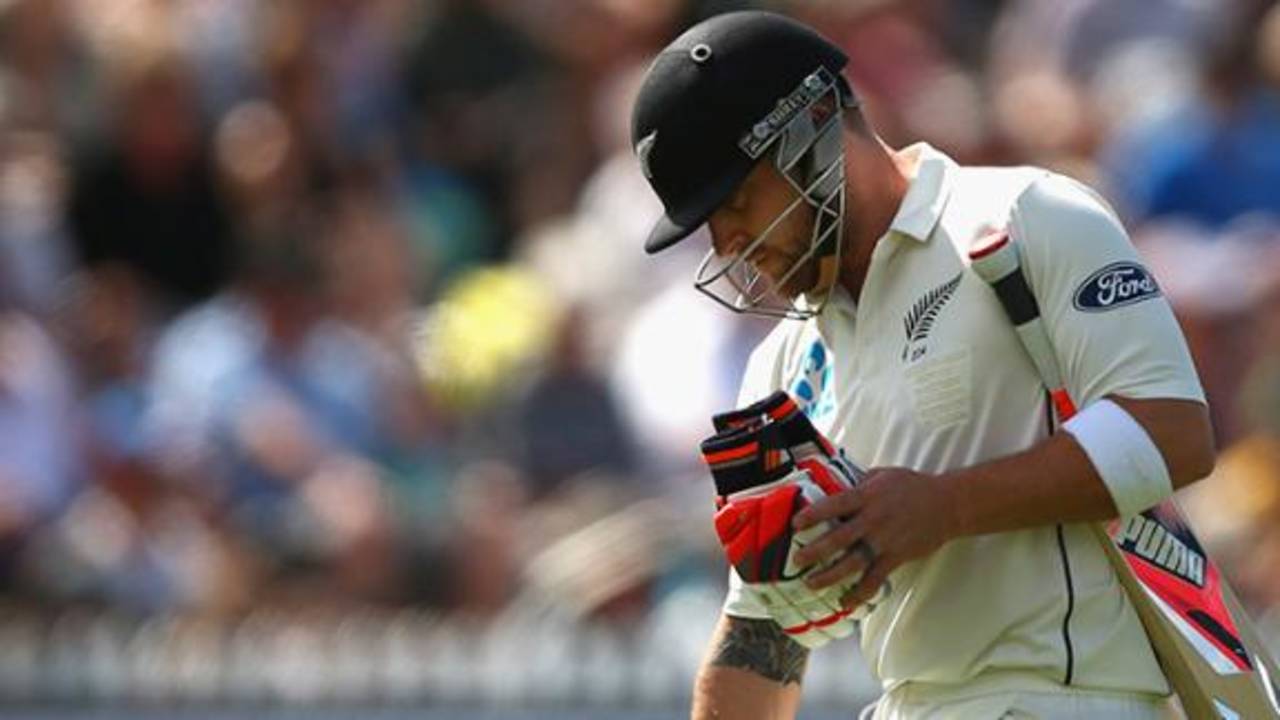Umpire
Richard Illingworth was "distraught" when he discovered that he had incorrectly called a no-ball that reprieved
Adam Voges on the first day in Wellington, according to match referee
Chris Broad.
Voges went on to score 239 in a match-defining innings; he was on 7 at the time when he left a delivery and was bowled off the Doug Bracewell no-ball, despite a significant part of the bowler's heel being behind the crease. Under the ICC playing conditions, a no-ball can be retrospectively called but not rescinded, so there was nothing that could be done about the call after Illingworth had made it.
"Unfortunately Richard was distraught afterwards when he realised that it wasn't a no ball," Broad told the Daily Telegraph. "… I think when anyone is proved wrong in any decision that they make it's clearly embarrassing at the time. But umpires, particularly on the elite panel have a great ability to be able to overcome that feeling and get on with the game.
"There can be nothing done about it. The problem is that when an umpire calls a no-ball, you can't change that decision because under the laws a batsman may change his shot when the no-ball is called. It was called - that's the end of the matter. Richard is a Yorkshireman, he shrugs his shoulders and gets on with it. I'm constantly amazed at how the umpires, when they do make their occasional errors, are able to recover from it."
The mistake has led to debate about whether the on-field umpire is the best person to call no-balls, and whether the job would be better placed in the hands of the TV umpire. Australia's coach Darren Lehmann, who sits on the ICC Cricket Committee which has discussed the matter in the past, said he would like to see the square-leg umpire take control of no-balls.
"It's a part of the game but I know it's not right," Lehmann said of Illingworth's error. "We all make mistakes, I make plenty as a coach, umpires are going to make some. It's heightened because he was on 7 and made 239 isn't it? The no-ball situation is getting tough for umpires. I'd have the square-leg umpire do the no balls, but that's me, that's my cricket hat on.
"Where do you go? How far do you go? How many no-balls are there in a game. How long will the day go, how many overs will we miss out on? All those questions have to be asked."
"It's something we've got to talk about at the ICC Cricket Committee. I sit on that so I have my views but there's a lot of views and a lot of good players who have played a lot of cricket on that. We've got to get the solution right for umpires as well, there's umpires on that commitee."
The incident occurred in the last over of the first day and was not replayed on the big screen at the Basin Reserve, so the New Zealand players did not realise the no-ball call was incorrect until they left the field at stumps. New Zealand coach Mike Hesson said he had spoken to Broad about the no-ball but the New Zealanders had moved on and tried to refocus on the match.
"I just discussed it with Chris Broad after the game, as you do, but it became fairly clear pretty quickly that there's not a lot that can be done about it, so you move on," Hesson said on Tuesday morning. The spirit [among the players] was fine, there's no doubt at the time we were disappointed, there's no doubt about that. We moved on pretty quickly."
After New Zealand's loss, captain Brendon McCullum indicated he would have no problem with taking no-ball calls out of the hands of the on-field umpires, and Hesson was also open to the possibility.
"The more decisions right the better," Hesson said. "If we can use more technology to do that then decisions like that become less influential. It's something the ICC are aware of and will discuss ... The game's about swings and roundabouts, sometimes you get a bit of fortune sometimes you don't. In this situation many batsmen get a reprieve but some are good enough to make the most of it and Adam Voges certainly made the most of it."
Brydon Coverdale is an assistant editor at ESPNcricinfo. @brydoncoverdale
